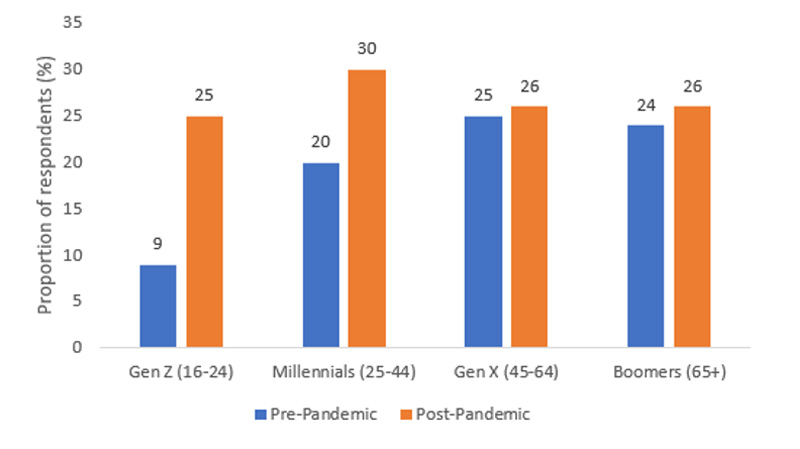Lockdowns and working from home have made shopping a welcome escape for consumers
This article is part of a four part mini-series, taken from our report "The Retail Experience Economy 2.0", which focuses on how the Retail Experience Economy will need to adapt after Covid-19. Find the other three parts at the bottom of this page
5 minute read
The Covid-19 pandemic has had a profound effect on what consumers wish to get out of their in-store experiences. Consumers have always wanted to be ‘entertained’ in stores, but the pandemic has only increased this need after over a year of lockdowns and restrictions, while retailers need to be all the more aware of creating an environment that is both appealing and feels safe for hesitant post-pandemic consumers.
Our research shows that across all consumer age groups, the value of escapism is higher than it was before the crisis and this appears to be a permanent shift in attitude. COVID-19 has heightened consumer desires to ‘escape’ the confines of restrictions and homelife monotony, particularly with the shift to more home working. Providing the opportunity for shoppers to embrace time away from their everyday routine is therefore an easy win for retailers looking to generate meaningful experiences.
Fig 1: 16% more Gen Z have a greater desire for Escapism since the pandemic

Source: Retail Economics
How can this be achieved? Both online and offline shopping can provide an escape into wished-for realities, and a distraction from uncomfortable or unwanted feelings. That said, physical stores have an advantage over online. Over a quarter of consumers (26%) said the experience of physical shopping helps ‘detach themselves’, providing a break from their daily routine, but only 12% of shoppers said the same for online.
Aspirational storytelling, imaginative settings and creative inspiration form the basis for powerful escapist experiences. Accordingly, retailers are migrating away from traditional retail formats to more avant-garde, trendsetting locations that offer greater scope for delivering escapism experiences. Concept stores are a prime example of this, breaking the mould of traditional outlets and offering products and services unavailable at normal stores.